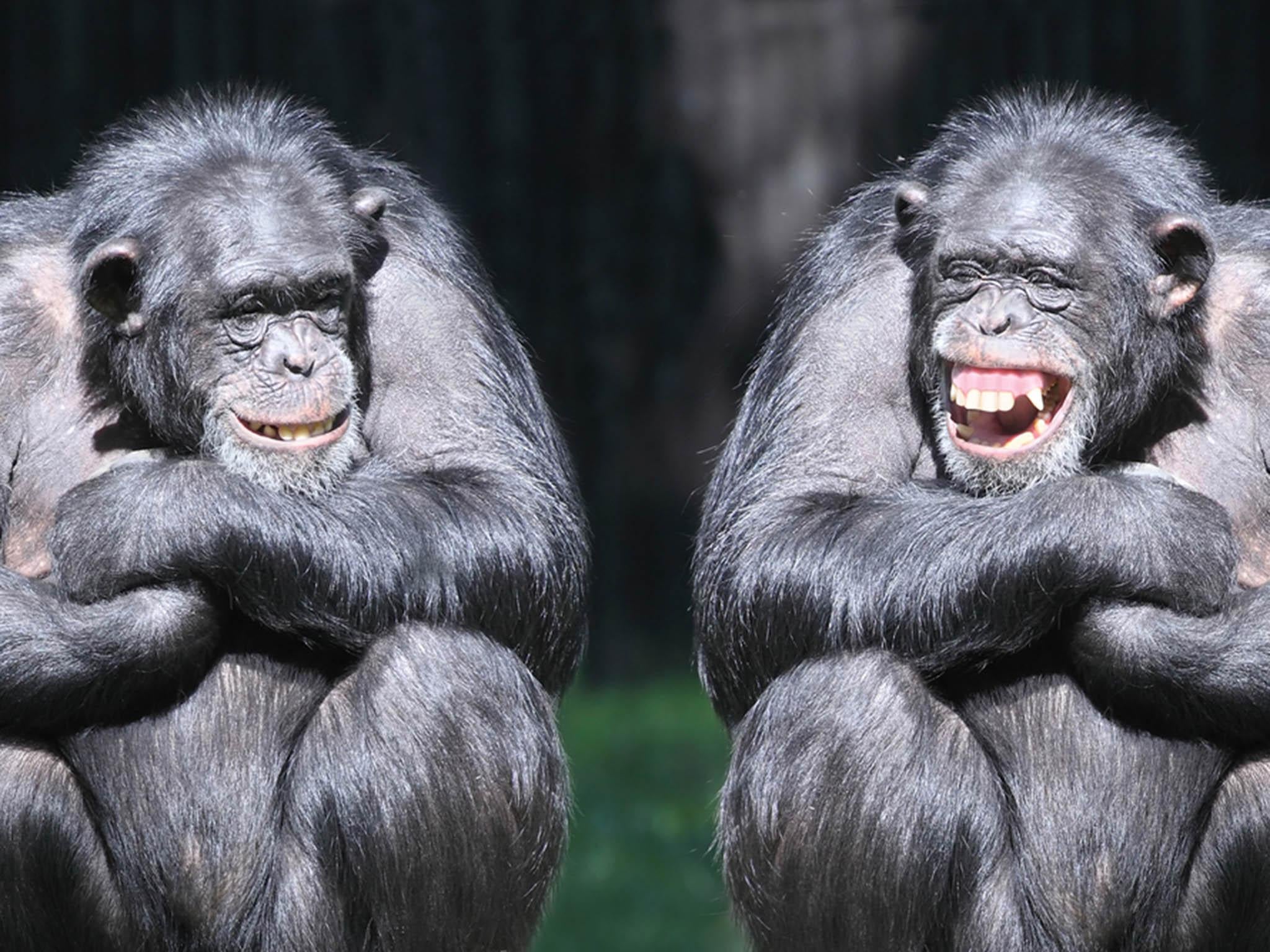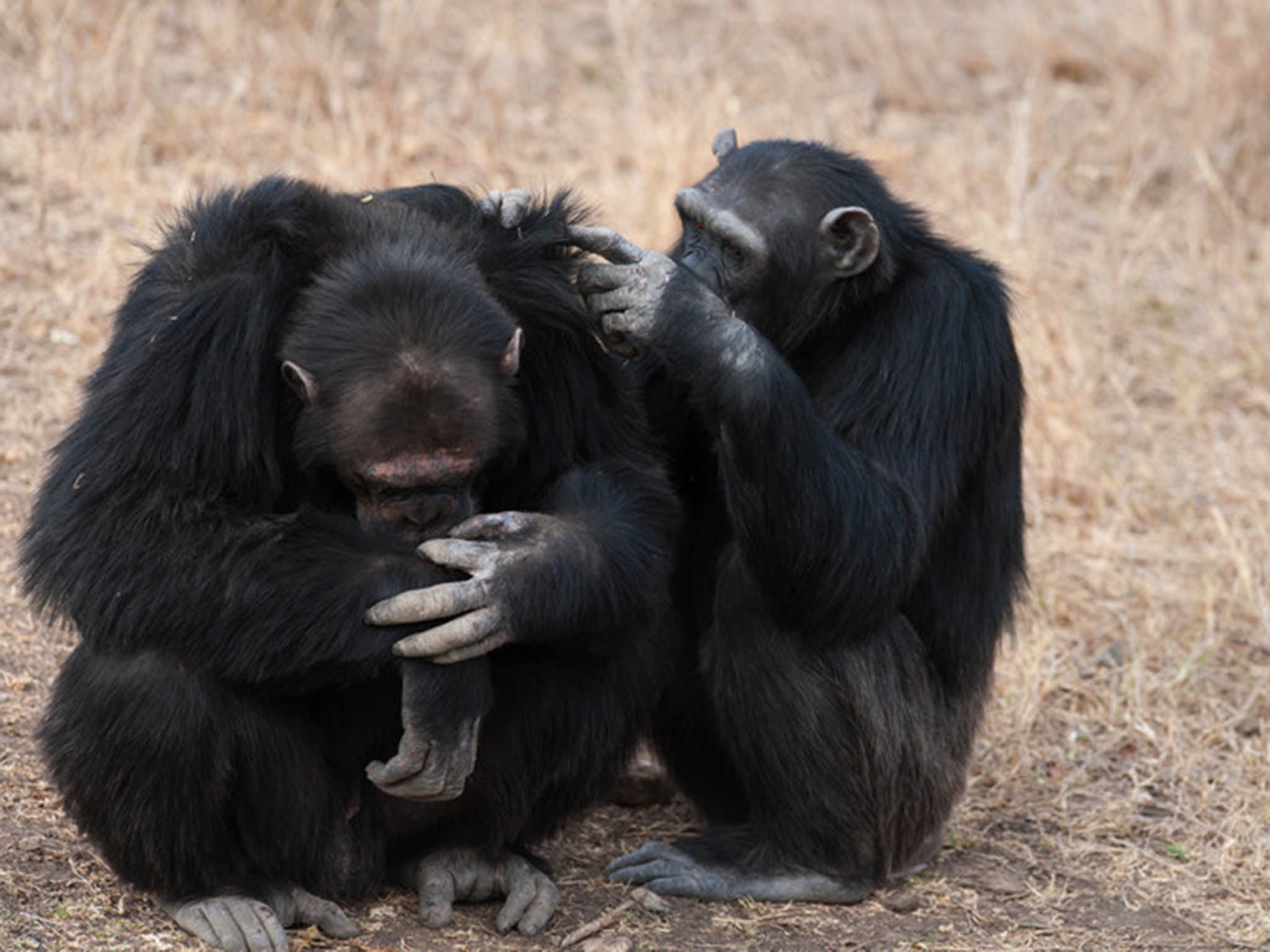Chimp study shows how hanging out with friends makes life less stressful
Research suggests friends don't just help in the bad times – they cut damaging stress just by being around

Whether offering us consolation after the death of a loved one or commiseration when our team loses yet again, our social relationships are invaluable for helping us lead happier, less stressful lives. And humans aren’t alone in this respect. The role of social interactions and bonds in reducing stress has been studied in many species, from rats to elephants.
But the jury is still out on how friends help us to cope with stress at a physiological level. Now new research into the role of relationships among chimpanzees suggests that friends don’t just create a “social buffer” by helping us during stressful times. They may also reduce our overall stress levels just by being present in our lives, regulating the way our bodies manage stress-indicating hormones.
Stress has been explored extensively in numerous non-human primates, including chimpanzees, macaques and baboons, and we know it can be devastating. For example, high stress levels in baboons can cause gastrointestinal ulcers and even early death. Strong social bonds appear to act as a buffer against the worst consequences of stress. There are broad health benefits to this, for instance a surprising increase in infant survival among less-stressed baboon mothers.
When it comes to what’s happening inside the body, we know that a good social environment correlates with a drop in stress-indicating hormones such as glucocorticoids. But we don’t know exactly how it happens.
Social buffer
A newly-published article in Nature Communications looks into two possible mechanisms behind the way social bonds act as a buffer to stress in chimpanzees. The researchers looked at two contrasting theories: whether “bond partners” (the chimpanzee equivalent of friends) just make particularly stressful times less so, or whether the effects of this partnership are felt throughout the day.
The researchers watched wild chimpanzees at a long-established Ugandan field site (Sonso) over two years, noting a range of aggressive and affiliative social interactions. This included times when the animals were resting, grooming each other and when they saw or heard members of other chimp groups. The researchers measured the chimps’ stress levels by extensively collecting urine samples to test for the presence of glucocorticoids.
To create a potentially stressful situation, an experienced field assistant waited until small groups of the chimps were near their territory borders and then drummed on the large root buttresses of trees. This replicated the drumming sounds chimps make to communicate within and between social groups. The aim was to see how these drumming encounters were perceived by individual chimps depending on their social support.
The hormone levels in the chimps’ urine showed that, perhaps unsurprisingly, they tended to be more stressed when they encountered (or thought they had encountered) animals from other groups. But the research also showed that the social relationships appeared to limit stress all the time, not just in the most stressful situations. This suggests it is important for chimps to have “bond partners” with whom they regularly engage in friendly and cooperative behaviour and rarely are aggressive towards.

It appears that both in and out of stressful situations, the daily presence of bond partners actually regulates the system that manages the body’s hormones, reducing an individual’s overall stress. While active support of a bond partner reduces glucocorticoid levels the most, their mere presence also leads to less stress.
Although not proven in this study, the authors believe that oxytocin (often referred to as the “love hormone”) may be responsible for this regulation. More generally, this hormone balance may also help improve the immune system, cardio function, fertility, mood and even cognition.
It is easy to mentally replace the chimpanzees in this study with humans, and use the term “friends” instead of “bond partners”. We all identify that hard times are easier with a friendly shoulder to cry on. Even in a day-to-day context, our lives are that little bit brighter when we know our friends are there.
But this paper reveals that the construction and maintenance of such close social bonds with others has significant, measurable benefits for the physical and mental well-being of chimpanzees, and is regulated at a physiological level. Not only could this help further our understanding of the evolution of human social behaviour, but it may also influence the way we face and tackle both physical illnesses and mental health problems across human communities.
ellow, animal and environmental biology, at Anglia Ruskin University
Join our commenting forum
Join thought-provoking conversations, follow other Independent readers and see their replies
Comments
Bookmark popover
Removed from bookmarks